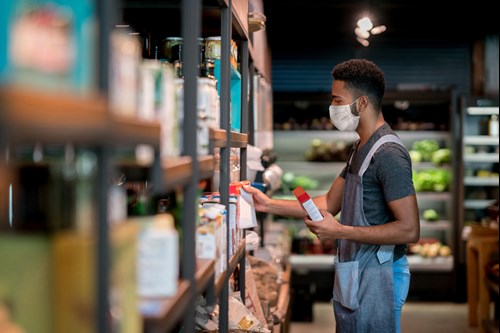


During the Covid-19 pandemic, businesses of all sizes had to quickly adjust to rapidly changing market conditions. Not only did revenue streams quickly decline for many businesses, but keeping remaining revenues going became difficult due to changes across the supply chain. While some products drastically increased in price, others became completely unavailable. This was complicated by the need to purchase new items like PPE, hand sanitiser and social distancing products, many of which faced unpredictably high demand.
Is your business ready for the next procurement crisis? If you’re unsure, working with a group procurement organisation (GPO) might be the answer.
As we have seen in 2020, times of crisis can produce many challenges for supply chains. From maintaining delivery schedules through to raw material availability for manufacturers, every link in the supply chain is subject to breaking. GPOs have category management teams dedicated to making sure that you can continue to get the products you need to run your business. By building long-term relationships with manufacturer and distributor partners, they also work hard to mitigate pricing fluctuations as a result of crises. Because of the scale a GPO offers, they can work strategically with suppliers to ensure continuity of supply – whilst never compromising on quality.
When supply chains break down, the products you normally purchase may become unavailable – often at short notice. Distributors will work to get you substitute items, but these substitutes may not be contracted and will likely carry a higher net price. By aggregating buying power from many businesses, GPOs have relationships with a wide range of manufacturers, increasing the likelihood that a contracted substitute is available. This will limit an unexpected financial hit from product substitutions.
In times of crisis, the market moves at pace and your procurement team needs to be able to react to changes. As demand increases, and supply tightens, prices can increase exponentially. The scale of a GPO means they are able to work closely with supply partners to mitigate these increases, helping you to source what you need, when you need it and at the best market cost.
Take Covid-19 as an example, many businesses were forced to start purchasing products they had never even looked at before - think masks, gloves and hand sanitising gel. Here at Foodbuy, we have real skin in the game as our diverse portfolio of clients and channels means there are very few products or services we don’t already buy.
If you don’t already have one, make sure you invest in an eProcurement or Procure-to-Pay (P2P) system this year. Throughout 2020, many procurement teams struggled to get visibility and control across their entire portfolio. By implementing a simple but intuitive system, you can use data and insights to inform the decision-making process across your supply chain. Not only will it tell you what you’re spending, where and how much, but it also helps you to forecast better with your supplier partners and mitigate the likelihood of any supply shortages.
By working with Foodbuy, you can immediately gain access to the foodservice and hospitality industry’s leading system, Epsys.
During a crisis, it’s often all hands-on deck for procurement teams, but it’s important you don’t lose sight of the issue at hand – and more importantly, what your supply chain can do to help. As procurement professionals, we come into our own when we’re negotiating, creating new revenue streams and optimising purchasing, but the main concern for clients and customers is business and supply chain continuity. No unwelcome surprises.
Looking ahead, expect more companies to embrace traceability technologies like blockchain and forensic science to understand the intricacies of their supply in more detail than ever before.
No matter how much a business prepares for a crisis, you may still need some extra help. GPOs offer other procurement services that you may need to help your operation survive:
If you need any help across your supply chain, feel free to contact us here.
